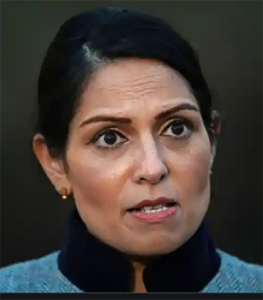UK’s Rwanda asylum plan under fire
The United Kingdom’s Conservative government’s is set to unveil a plan to send asylum seekers to Rwanda for processing.
UK Prime Minister Boris Johnson is reported to be ready to announce the measure to ‘offshore’ applicants to Rwanda over rising concerns and media reports about the number of people crossing the Channel.
 But local reports say that some Conservative MPs have raised concerns about the measures not being ready, and that there is resistance among some Conservatives in the houses of Commons and Lords.
But local reports say that some Conservative MPs have raised concerns about the measures not being ready, and that there is resistance among some Conservatives in the houses of Commons and Lords.
And UK refugees minister Richard Harrington has slammed Mr Johnson’s plan, saying it will fail.
The UK Government hopes to pass the Nationality and Borders bill before the Queen’s speech next month, which includes the controversial plans.
Meanwhile, Opposition politicians, campaigners and charities have all expressed concern about the processing plans.
Home Secretary Priti Patel was originally said to have been considering offshore locations such as decommissioned oil rigs and ferries, as well as Ascension Island, thousands of miles from the UK, to accommodate vulnerable asylum seekers while their applications to come to Britain were processed.
But the new UK government is now in negotiations with the Rwandan authorities to set up a processing centre there to house people awaiting a decision on their applications.
The Scottish National Party described the plans as “inhumane” while Labour has also said the measures are “deeply shameful”.
This is not the first time the UK’s Nationality and Borders bill has drawn criticism.
The bill amends the UK’s Nationality, Immigration and Asylum Act 2002 so that it would be possible to move asylum seekers from the UK while their asylum claim or an appeal is pending.
Under the new bill, people confirmed to have fled war or persecution would face strengthened checks that could see them blocked from entering the UK based on how they arrived in the country.
“The bill will make it a criminal offence to knowingly arrive in the UK without permission to be here, sending a clear message to migrants thinking about making the dangerous and illegal journey,” the British government says on its website.
“Those who enter the UK illegally will find it harder to stay under fundamental reforms,” it says.
The plan has drawn strong criticism from human rights groups, the UN and the European Commission, which said it would undermine international cooperation and lacked guarantees on human rights protection.
UK refugee advocacy group The Refugee Council has said that the bill could have dangerous impacts on those seeking refuge in the UK, however, with the potential to see more than 9,000 refugees who would be accepted under current rules blocked from entering the country.
UK’s Refugee Council chief executive Enver Solomon said that offshore processing was “an act of cruel and brutal hostility towards vulnerable people who through no fault of their own have had to flee war, oppression and terror”.












